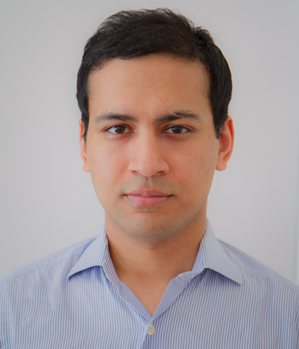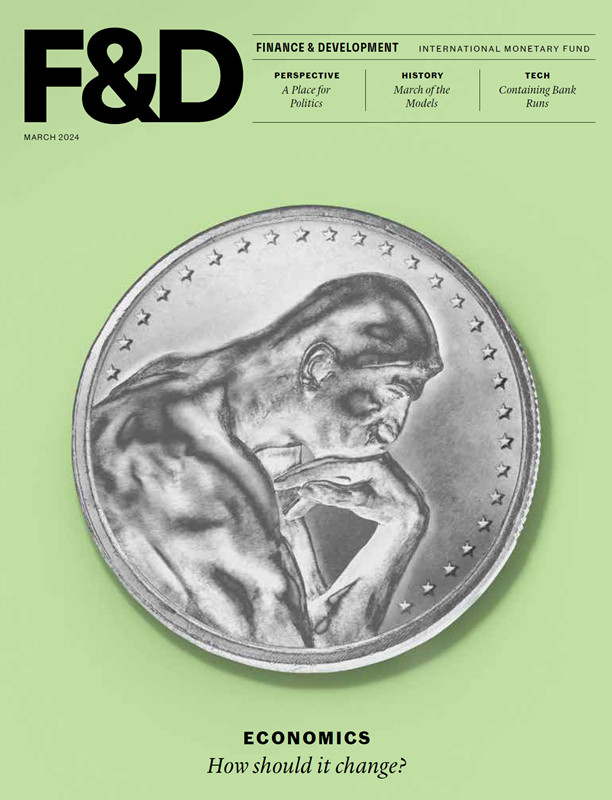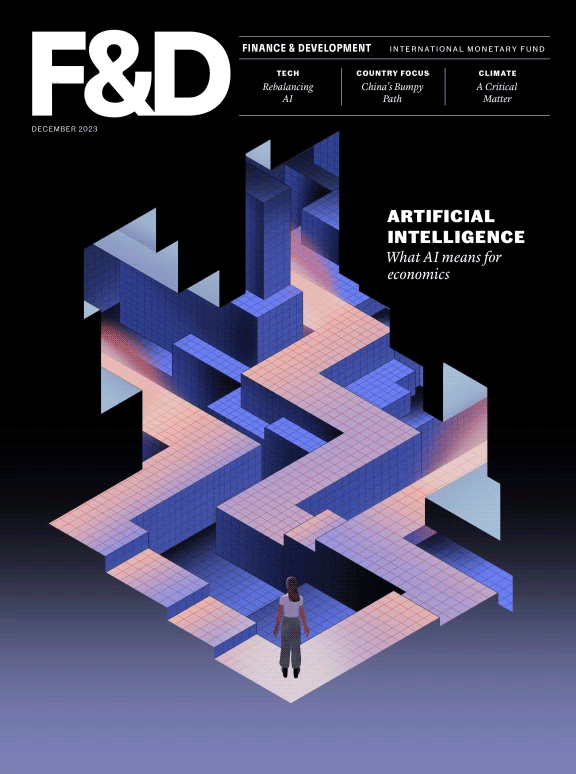The Global Fund’s Peter Sands believes that economists should pay more attention to global health
COVID-19 took everyone, including economists, by surprise. Pandemics pose significant macroeconomic costs, but only recently have garnered the attention they deserve.
This disconnect troubles Peter Sands, executive director of the Global Fund to Fight AIDS, TB, and Malaria, whose background is in both finance and health. Previously, he was CEO of Standard Chartered, the lead non–executive director on the board of the UK Department of Health, and a board member of the Global Business Coalition on AIDS, TB and Malaria.
In an interview with Ruchir Agarwal—head of the IMF’s Global Health and Pandemic Response Taskforce, established to enhance the Fund’s contributions to fight COVID-19—Sands reflects on global health, pandemics, and why economists should care.
F&D: Early in the pandemic, you wrote “When Finance Fails,” which investigated economists’ failure to anticipate the COVID collapse. Why did that happen?
PS: After I left Standard Chartered, I spent time as a research fellow at Harvard looking at the economics and finance of global health, particularly around pandemics. I was especially fascinated that almost no one in the financial or economic world, including the IMF, seemed to take the risk of such outbreaks seriously. Specifically, I identified 15 countries that had suffered infectious disease outbreaks and looked at the country reports published by the IMF, S&P, and the Economist Intelligence Unit two years prior and two years after those outbreaks. While outbreaks were mentioned in 63 percent of the IMF reports published afterwards, not a single report published before an outbreak highlighted the risk. And this was not unique to the IMF reports.
What causes this blind spot? For one, humans, even economists, are not good at estimating low-probability, high-impact events. We either exaggerate or ignore them. People tend to examine the risks they understand, and because institutions like the IMF didn't feel comfortable with issues related to epidemiology, they didn’t look at them. There was a chasm of understanding between the worlds of health and economics, both highly specialized and technical, whose people can’t speak each other’s language.
F&D: What unique perspectives can the IMF bring to assessing the impact of such outbreaks ahead of time?
PS: Relatively minor outbreaks occur regularly, but every now and then one surges, as we’ve seen with COVID-19. It is possible to assess a country’s vulnerability to outbreaks and its ability to deal with them, just as the IMF assesses a country’s ability to deal with other macrocritical challenges, such as liquidity shocks. The IMF could draw on others for the epidemiological side but look at how an outbreak could affect the economy. This requires skills and capacities that are core strengths of the IMF.
F&D: Has COVID-19 highlighted the macrocritical aspects of health? Are you optimistic that institutions like the IMF will now pay more attention to them?
PS: If large institutions like the Fund haven’t worked out that infectious diseases can have massive macroeconomic and financial effects because of COVID-19, I don’t know what will convince them. It’s even bigger than the global financial crisis. The pandemic revealed how transmissions between diseases and economies work, such as who wins and loses—some of which is surprising. But I don’t think anybody can now say, “If I’m going to assess future economic risks, I can ignore the threat of a potential pandemic.”
F&D: From your vantage point at the Global Fund, what are the key near-term priorities to save lives and support a broad-based economic recovery?
PS: The Global Fund was set up to fight the last big pandemic, HIV/AIDS, which killed nearly 40 million people. Our core strength is fighting the biggest infectious diseases. We responded to the COVID-19 crisis very quickly, making money available in March 2020. Since then, we’ve deployed about $4 billion. The Global Fund has been the primary provider of support to low- and middle-income countries for non-vaccine health elements, such as testing, PPE [personal protective equipment], and oxygen.
To beat the pandemic, it is necessary to go bigger and faster. The logic of fighting infectious diseases is to hit them fast because there’s a nonlinear impact both on beating them and if you let them run rampant. A lopsided response must be avoided. Vaccines are our most potent weapon, but vaccines alone will not defeat COVID. A more comprehensive response that encompasses a wider range of elements is needed.
F&D: Has the pandemic affected the world’s ability to tackle other major diseases?
PS: COVID-19 is the worst thing that ever happened to the fight against HIV, TB, and malaria. The Global Fund recently published its 2020 results report; for the first time in our 20-year history, there were reverses in key results across all three diseases. To put this into perspective, in most low- and low-middle-income countries, HIV, TB, and malaria kill more people than COVID. We need a response that deals with both the direct impact of COVID and its knock-on impact on these other diseases.
F&D: Could COVID-19 catalyze support for a comprehensive approach to global health, not just disease by disease but across a broad spectrum?
PS: People need to be protected from a whole slew of pathogens. It makes no sense to save someone from COVID-19 only for them to die of TB. Another lesson is the value of an end-to-end perspective, with people who are involved in the deployment of new medical tools working with those developing and launching them.
The third lesson is the value of time. As a banker, I heard people say, “time is money.” In the global health world, time is life. But the global health world doesn’t always work like that; it is more measured. We have responded to COVID at an unprecedented pace. We should translate that urgency into our response to other diseases.
F&D: There’s been recent good news on approval of a malaria vaccine. Are you optimistic about other areas in the months and years ahead?
PS: The COVID-19 experience—which broke previous assumptions about how long it takes to develop responses such as rapid diagnostic tests and vaccines—is challenging expectations about how long it takes to develop these for other diseases as well. The approval of RTS,S, the new malaria vaccine, took years, and the Global Fund put money into its development. And there are other examples. We’ve talked with people in the TB world who are excited about the possibility of a vaccine in four to five years. I’ve been asking, If we can develop a vaccine in just a year for a virus we’d never seen before, why are we excited about waiting four to five years for a vaccine for a disease we’ve had for hundreds of years? We need a different sense of urgency.
This interview has been edited for length and clarity.
Opinions expressed in articles and other materials are those of the authors; they do not necessarily reflect IMF policy.









